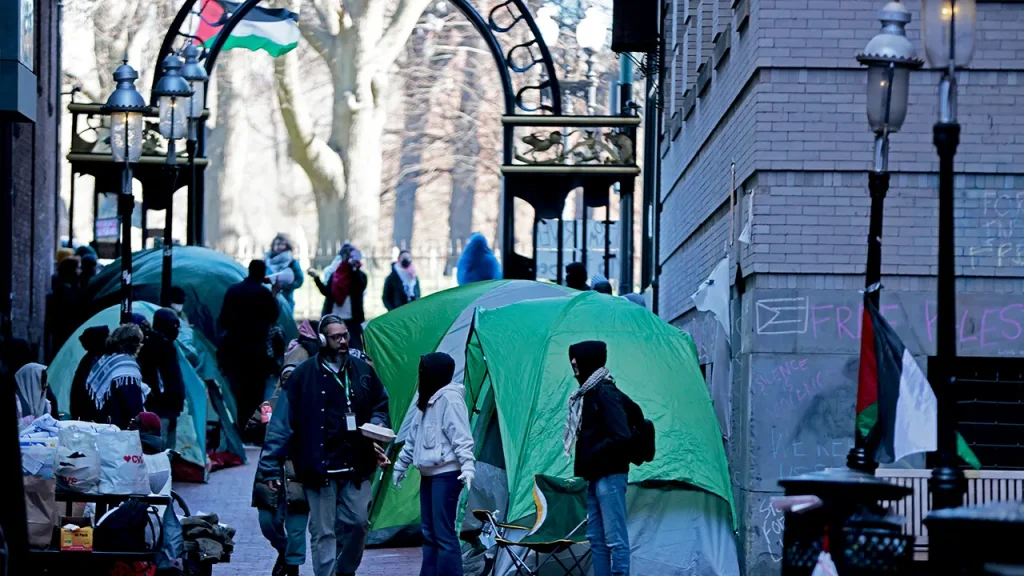Boston police arrested 108 demonstrators at Emerson College due to clashes with anti-Israel agitators that left four officers injured, with three sustaining minor injuries and one more seriously injured. The protesters will be arraigned in Boston Municipal Court later on the same day. Boston City Councilor Ed Flynn contacted Emerson College after complaints were made about protesters blocking public access, emphasizing the need to address violations of city ordinances, specifically regarding unlawful camping on public property. An announcement was made in the early hours of the morning that individuals staying at the anti-Israel encampment would be arrested, resulting in officers having to physically remove protesters who resisted.
Anti-Israel disruptions have been happening nationwide, with escalations at USC, Harvard, and Columbia University. Other anti-Israel encampments have also been set up at MIT, Tufts University, and Harvard Yard, where protesters set up tents for a “Gaza solidarity encampment” and demanded that Harvard divest from companies with ties to Israel and essentially boycott the Jewish state. Harvard President Alan Garber refused to rule out police action against the encampment, indicating a potential clash between authorities and protesters. This incident is part of a larger trend of anti-Israel demonstrations taking place on college campuses across the country.
Protests on college campuses have sparked debates around freedom of speech, public access, and the enforcement of city ordinances. Boston police’s response to the demonstrators at Emerson College highlights the challenges of balancing the right to protest with maintaining public safety and order. President Trump has weighed in on the issue, expressing a desire to “fire the radical left” from colleges and focus on defending traditional American values if elected, signaling a broader political context in which these protests are taking place. The clashes between protesters and police underscore the complex dynamics at play when addressing contentious issues like the Israeli-Palestinian conflict in an academic setting.
The incidents at Emerson College and Harvard are indicative of a larger movement advocating for divestment from companies with ties to Israel and broader solidarity with Palestinians. Anti-Israel protesters have strategically utilized social media and public spaces to raise awareness for their cause, mobilizing support and drawing attention to their demands. The response from authorities, including the potential for police action, suggests a heightened level of tension and confrontation as these demonstrations continue to unfold. The involvement of students, faculty, and elected officials in these protests further complicates the situation and underscores the deeply polarizing nature of the Israeli-Palestinian conflict in the United States.
Overall, the escalating anti-Israel demonstrations at Emerson College, Harvard, and other universities highlight the complexities of balancing conflicting rights and interests in public spaces. The clash between protesters and police, as well as the broader political significance of these protests, raises important questions about the role of universities in addressing controversial issues and maintaining a safe and inclusive environment for all students. The ongoing demonstrations underscore the need for dialogue, empathy, and constructive engagement to navigate these challenging and sensitive issues in a constructive and peaceful manner.


